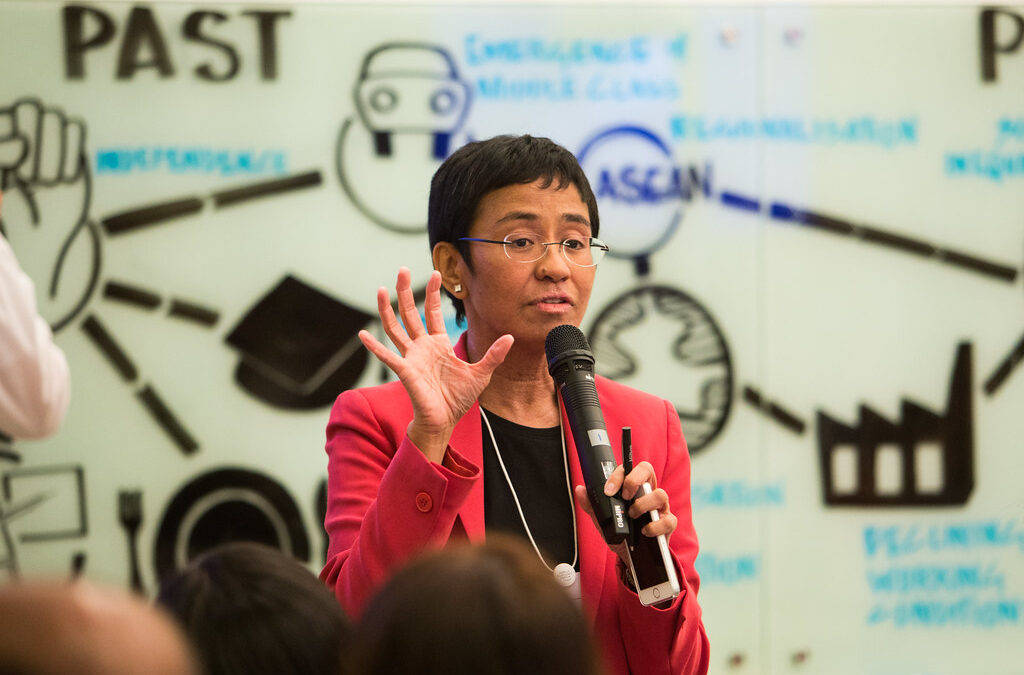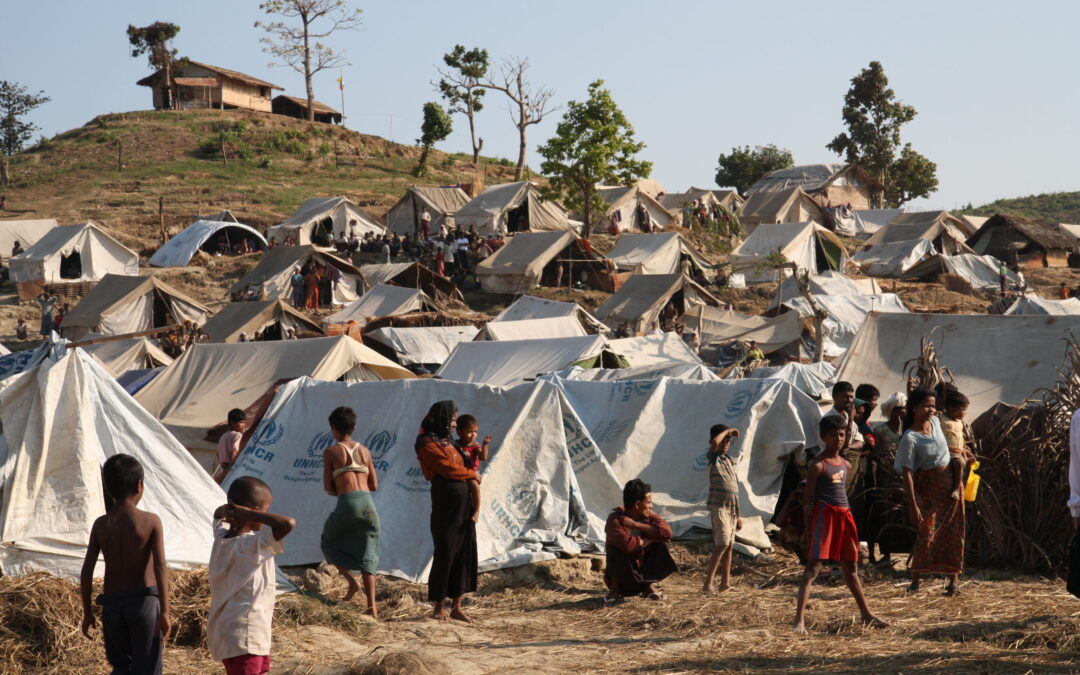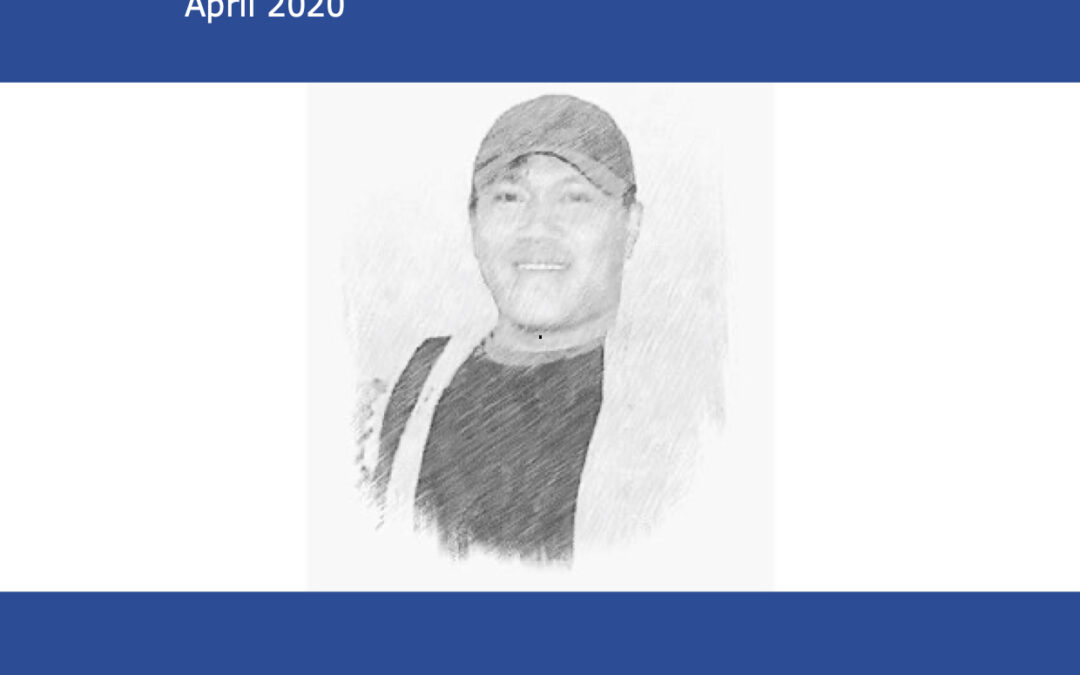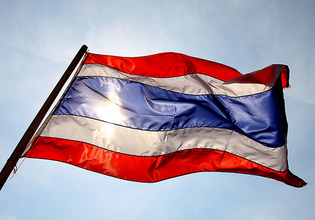
Jun 16, 2020 | News
Today, the ICJ condemned the prosecution and conviction of journalists Maria Ressa and Reynaldo Santos, Jr. after the Manila Regional Trial Court found them guilty of cyber-libel for an article published on the news website Rappler. The ICJ called for the judgment to be reversed on appeal.
The ICJ also called on the Philippines to reform its laws to remove the possibility of criminal sanction for defamation and libel offenses, in line with its international legal obligations. The ICJ recalled that imprisonment for such offenses is never permissible.
“The guilty verdict is a new low for the Duterte administration, and adds to an atmosphere of intimidation that creates a chilling effect on online expression, especially for journalists seeking to hold the government to account,” said Frederick Rawski, ICJ Asia-Pacific Director.
“The conviction is not only a miscarriage of justice in this particular case; it also sets a terrible precedent for the use of criminal defamation laws to prosecute speech online in the Philippines and elsewhere in the region.”
Ressa and Santos were convicted pursuant to Section 4(c)(4) of the 2012 Cybercrime Prevention Act (CPA), and sentenced to imprisonment of up to six years and a fine of PhP 200,000 (approx. USD 4,000). Ressa is the executive editor of Rappler while Santos was the author of the article. Ressa’s conviction comes after years of legal harassment, forming part of a pattern of attacks upon the press by the Duterte government and placing the Philippines in violation of the right to freedom of expression under the International Covenant on Civil and Political Rights (ICCPR), to which the Philippines is a party.
The charges involved an article first published in May 2012 on the Rappler website, months before the CPA was enacted in September 2012. The article reported on businessman Wilfredo Keng’s alleged involvement in “human trafficking and drug smuggling.” Keng initiated the criminal proceedings against Ressa and Santos in October 2017, five years after the article was published.
However, the trial court considered the article to have been “republished” on 19 February 2014 when Rappler updated the article on its website to fix a typographical error. Further, since the CPA does not expressly mention the prescriptive period, the trial court held that Republic Act No. 3326 applies, which provides a 12-year prescriptive period for offenses punished under a ‘special law’ such as the CPA. In contrast, ordinary libel under the Revised Penal Code carries a one-year prescriptive period.
“Regardless of the merits of the case, criminal sanction involving imprisonment must never be imposed for defamation,” said Rawski.
“On top of this general consideration, the judgment even sets a dangerous precedent by expanding the prescriptive period and ‘publication’ requirement for the crime of libel, contradicting well-established protections against ex post facto laws and that any ambiguity in penal laws must be resolved in favor of the accused.”
The right to freedom of expression under Article 19 of the ICCPR extends to political discourse, commentary on public affairs and journalism. The UN Human Rights Committee, the supervisory body for the ICCPR, has called on States to abolish existing criminal defamation laws and reserve defamation for civil liability. The Committee concluded in 2012 that the Philippines’ criminalization of defamation, including under the CPA, breaches its obligations under the ICCPR. Article 15 of the ICCPR also prohibits the prosecution of persons for acts that were not considered a crime at the time of commission.
The Committee and the UN Human Rights Council have affirmed that these safeguards apply online as well as offline, as Article 19 protects expression regardless of frontiers and through any media of one’s choice. The UN Special Rapporteur on freedom of expression has consistently called for decriminalization of defamation as a criminal offence, which is inherently harsh and encourages self-censorship.
Contact
Emerlynne Gil, Senior International Legal Adviser, +662 619 8477 (ext. 206), emerlynne.gil(a)icj.org
Download
Philippines-Maria-Ressa-Press-Release-2020-ENG (PDF)
Related work
Report: Curtailing Free Expression, Opinion and Information Online in Southeast Asia
Philippines: order to major media outlet to stop airing violates freedom of expression and access to information

May 22, 2020 | News
In order to comply substantially with the International Court of Justice’s provisional measures Order in the case of The Gambia v. Myanmar, Myanmar should carry out legal reforms and cooperate with international accountability processes, said the ICJ today.
The Gambia has accused Myanmar of violations of the 1948 Genocide Convention in respect of its treatment of Rohingya population, characterized by acts of widespread killing and displacement of the population.
The call comes as Myanmar is scheduled to report on “all measures taken” to give effect to the provisional measures Order (Order) issued by the Court on 23 January 2020.
“Myanmar has not taken ‘all measures within its power’ to prevent acts of genocide until it implements comprehensive legal and constitutional reforms,” said Sam Zarifi, Secretary General of the International Commission of Jurists. “Accountability lies at the heart of prevention, and so long as the Tatmadaw remains unaccountable to the civilian authorities the cycle of impunity for criminal atrocities within the country will continue.”
Since the Order, Myanmar has taken a limited number of steps linked to its compliance with the Order, including issuing three Presidential Directives encouraging anti-hate speech activities, and ordering compliance with the Genocide Convention and the preservation of evidence of human rights and related violations in Rakhine.
Myanmar has also asserted that the findings of the Government-commissioned Independent Commission of Inquiry (ICOE), which made selective admissions including that war crimes may have been committed during the 2017 “clearance operations” in Rakhine, have been transmitted to the Attorney General and the Commander-in-Chief of the Tatmadaw and that action would be taken “in conformity with military justice procedures if there is credible evidence of any commission of offence by members of the Tatmadaw.”
However, the Government has yet to amend or repeal key laws that facilitate discrimination against the Rohingya, including the 1982 Citizenship Law, 2015 Race and Religion Protection Laws and 2014 Myanmar National Human Rights Commission Law. On 6 May 2020, the International Commission of Jurists published a report on the killing of a journalist, Ko Par Gyi, in September 2014, which condemned the fundamentally flawed “military justice procedures” used to address allegations of serious human rights violations. The report highlighted the many deficiencies in ensuring to accountability for serious human rights violations in Myanmar under its prevailing legal framework, including:
- that several provisions of national laws facilitate impunity for serious human rights violations by soldiers against civilians, shield security forces from public criminal prosecutions and deny victims and their families of the right to truth about violations;
- investigations into unlawful killings routinely lack the independence, impartiality and effectiveness necessary to establish the truth and to provide accountability and redress; and
- the rights of victims and their families are rarely respected, including the right to access information concerning the violations and accountability processes, and the right to remedies and reparations.
The UN Human Rights Council has established an Independent Investigative Mechanism to look at allegations of genocide, crimes against humanity and other atrocities in Myanmar, but the government has failed to extend its cooperation with the mechanism.
“Myanmar’s inability to prevent serious human rights violations under the existing legal framework underscores the need for it to cooperate with international justice processes, including the UN’s Independent Investigative Mechanism for Myanmar – and for the UN Security Council to refer the situation to the International Criminal Court,” added Zarifi.
Download the statement with detailed background information here.
Contact
Sam Zarifi, Secretary General of the International Commission of Jurists, t: +41 79 726 4415; e: sam.zarifi(a)icj.org
Kingsley Abbott, Coordinator of the ICJ’s Global Accountability Initiative, t: +66 94 470 1345; e: kingsley.abbott(a)icj.org
Related work
Report: Remove barriers to justice for killing of journalist Ko Par Gyi
Statement: Why law reform is urgent and possible
Statement: Implement International Court of Justice provisional measures Order without delay
Briefing Paper: Four immediate reforms to strengthen the Myanmar National Human Rights Commission
Briefing Paper: Myanmar’s discriminatory citizenship laws can and must be reformed

May 8, 2020 | News
The ICJ today denounced the decision on 5 May 2020 by the Philippines’ National Telecommunications Commission (NTC) to issue an order to ABS CBN Corporation, one of the leading media outlets in the country, to cease its on-air operations.
The ICJ asserted that the action against ABS CBN violates the right to freedom of opinion and expression, which includes the rights of the media to operate without censorship or restraint and the public’s right to access information. This right is guaranteed under Article 19 of the International Covenant on Civil and Poliitical Rights (ICCPR). The Philippines is a State Party to the ICCPR.
“A free and unhindered media is essential in any society to ensure freedom of opinion and expression and other human rights. It is one of the cornerstones of a democratic society,” said Emerlynne Gil, ICJ’s Senior International Legal Adviser.
The NTC’s basis for issuing the order is that ABS CBN’s legislative franchise has expired on 4 May 2020 and action has yet to be taken on its renewal by the House of Representatives. The ICJ fears that the reasons for this delay may be politically motivated.
Given the stakes for freedom of expression, the ICJ urges NTC to follow its own precedents whereby it has allowed broadcast and telecommunications companies to operate beyond their franchise expiry dates, pending the renewal.
“Limitations imposed on the right to freedom of opinion and expression have to pass the general tests, including that of necessity and proportionality, which do not appear to have been met here,” Gil added.
The action taken against ABS CBN is part of a pattern of harassment of independent media by governmental authorities in the Philippines. President Rodrigo Duterte has, in the past, expressed resentment towards ABS CBN for allegedly refusing to air his political ads when he ran for office in 2016. The network is also known to have aired views critical of his administration’s murderous ‘war on drugs’.
In December 2019, President Duterte said that he would make sure that ABS CBN’s franchise would not be renewed. This is not the first time that he has sought to silence a media outlet critical of his administration.
There are at least 11 bills seeking the renewal of the franchise currently pending at the House of Representatives, with the earliest filed in July 2019.
“It is taking the House of Representatives an inordinately long period of time to approve the renewal of ABS CBN’s franchise,” said Gil. “It appears that the allies of this administration in the House are holding the franchise renewal like a sword over ABS CBN’s head to chill it from airing critical views about the government.”
The UN Human Rights Committee, the ICCPR’s supervisory body, has said that States must avoid imposing onerous licensing conditions on broadcast media, and that the criteria for the application of these conditions should be reasonable, objective, clear, transparent, and non-discriminatory.
This action against ABS CBN comes in the middle of the state of public health emergency in the Philippines when access to information is vital in the country’s response to the COVID-19 crisis. The ICJ had earlier raised its concerns on abuses occurring during the lockdown in the Philippines.
The ICJ calls on the Philippine government to uphold and respect freedom of opinion and expression, and ensure that a free press can operate without censorship or restraint.
The ICJ also reminds the government that the public’s access to information is vital to ensure public health and safety during the COVID-19 crisis.
Contact
Emerlynne Gil, Senior International Legal Adviser, t: +662 619 8477 (ext. 206) or e: emerlynne.gil(a)icj.org

May 6, 2020 | Advocacy, News, Publications
In a report published today, the ICJ called on the police and prosecutorial authorities in Myanmar to re-open the investigation into the death of journalist Ko Par Gyi in military custody in September 2014.
The report documented the many barriers that have prevented justice from being served in this case, as well as other cases of gross human rights violations in Myanmar.
The ICJ called on the Union Parliament to repeal or amend the 1959 Defence Services Act and other legislation that effectively provides immunity to military personnel accused of serious crimes. These and other barriers have been described at length in the ICJ’s 2018 report on Achieving Justice for Gross Human Rights Violations.
“More than three years ago, the police abruptly ended their formal inquiry into the killing of Ko Par Gyi, without providing any justifiable legal rationale for its closure,” said Frederick Rawski, ICJ Asia Pacific Director. “In the intervening years, we have seen what happens when this culture of military impunity goes unaddressed.”
In the report, An unlawful killing: How Ko Par Gyi’s death highlights barriers to justice in Myanmar, the ICJ evaluated the various investigations into the death and identified three key obstacles to justice in the case:
- the existence and operation of national laws like the 1959 Defence Services Act that shield security forces from public criminal prosecutions, serving to deny victims and their families the right to truth about violations;
- sub-standard investigative practices that are vulnerable to political pressure and lacked independence, and simultaneous, separate and uncoordinated investigations that resulted in an unsystematic and ineffective approach to investigating the case; and
- a lack of transparency that denied the family their right to access information concerning the violations and accountability processes.
Ko Par Gyi was detained by police in Mon State and transferred to military detention on 30 September 2014. He died four days later in military custody. A deeply flawed inquiry carried out in military courts, pursuant to the 1959 Defence Services Act, resulted in the acquittal of the soldiers allegedly involved. Those same provisions are commonly used to transfer cases involving military personnel from civilian to military court. Under international standards, military courts should not be used to try military personnel or others for gross human rights violations and crimes under international law.
“It is no surprise that an international investigative mechanism has been established to look into alleged serious human rights violations in Rakhine and elsewhere in Myanmar,” said Rawski. “Myanmar’s legal framework does not provide adequate safeguards to ensure independent investigation into and prosecution of serious human rights violations. What happened to Ko Par Gyi’s case illustrates that all too clearly.”
The UN Human Rights Council has established an Independent Investigative Mechanism for Myanmar (IIMM) to collect evidence and prepare files for criminal prosecution of the most serious international crimes and violations of international law committed in Myanmar since 2011.
Key recommendations in the report include:
- To the Executive and the Union Parliament: amend the 1959 Defense Services Act to align it with democratic principles, the constitutional guarantee of equal legal protection, and the State’s international law obligation to protect the right to life, including by prosecuting serious violations.
- To the Tatmadaw: apply standards and procedures in military courts that conform to international law, ensure all crimes perpetrated against civilians are tried in the civilian judicial system, and reform rules of engagement to explicitly instruct soldiers to protect life, consistent with international law.
- To the Myanmar Police Force and the Union Attorney General’s Office: align investigative procedures and practices with international law and standards.
- To the Myanmar National Human Rights Commission: take an active and broad interpretation of the MNHRC mandate to address serious human rights violations including those which have gone before courts.
- To UN Member States and international organizations: ensure any organizational support to security forces is contingent on and enables demonstrable commitments to prevent and punish violations by its members.
This report was produced as part of the ICJ’s Global Accountability Initiative, which aims at combatting impunity and promoting redress for gross human rights violations around the world through the entrenchment of the rule of law
Download
An unlawful killing: How Ko Par Gyi’s death highlights barriers to justice in Myanmar in English and Burmese.
Press statement with additional background information on Ko Par Gyi in English and Burmese.
Contact:
Frederick Rawski, ICJ Asia Pacific Regional Director, (Bangkok), t:+66 64 4781121, e: frederick.rawski@icj.org
Kingsley Abbott, Coordinator of the ICJ’s Global Accountability Initiative, t: +66 94 470 1345; e: kingsley.abbott(a)icj.org

Apr 27, 2020 | News
Today, the ICJ and Lawyers’ Rights Watch Canada (LRWC) jointly submitted a legal brief (amicus curiae) to the Court of Appeal in criminal defamation proceeding against Thai journalist Suchanee Rungmuanporn (Cloitre).
The journalist is being charged after making a post on Twitter highlighting labour rights violations by Thammakaset Company Limited. The post detailed an order by Thailand’s Court of Appeal for Specialized Cases for Thammakaset to provide compensation to its 14 former employees from Myanmar, with the word “slavery” included in the post. This inclusion is the basis for defamation claim.
On 24 December 2019, Suchanee was sentenced to two years’ imprisonment by Lopburi Provincial Court.
The intervention reviews the nature and scope of Thailand’s international legal obligations relating to the right to freedom of expression. It makes clear that the imposition of harsh penalties such as imprisonment has a “chilling effect” on the exercise of freedom of expression, which Thailand is bound to protect pursuant to its international legal obligations. It particularly undermines the work of journalists and human rights defenders seeking to bring to light these violations and whose activities must be protected.
The brief underscores that under international law and standards, criminal sanction involving imprisonment must never be imposed for defamation.
Criminal defamation, under sections 326 of the Criminal Code, carries a maximum sentence of one year of imprisonment, a fine of up to 20,000 Baht (approx. USD 640) or both. Section 328 criminalizes defamation “by means of publication” with up to two years’ imprisonment and a fine of up to 200,000 Baht (approx. USD 6,400).
This case is one of 36 cases brought by Thammakaset against several individuals who have expressed views and conducted advocacy on or released information relating to labour rights violations alleged to have been committed by Thammakaset. These include criminal defamation complaints against human rights defenders, including Mr. Nan Win, Ms. Sutharee Wannasiri, Ms. Ngamsuk Rattanasatiean, Ms. Angkhana Neelapaijit, Ms. Puttanee Kangkun, and Ms. Thanaporn Saleephol.
Download
Legal brief (amicus curiae) to the Court of Appeal in Thai and English.

Apr 24, 2020 | News
On 24 April 2020, the ICJ, Thai Lawyers for Human Rights (TLHR) and the Cross Cultural Foundation (CrCF) made a joint supplementary submission to the UN Human Rights Committee on Thailand’s implementation of its human rights obligations under the International Covenant on Civil and Political Rights (ICCPR).
In their submission, the ICJ, TLHR and CrCF detailed their concerns in relation to Thailand’s failure to implement the Committee’s recommendations, including the ongoing human rights shortcomings of the country’s Constitutional and legal framework; the continued lack of domestic legislation criminalizing torture, other ill-treatment and enforced disappearance; and reports of torture and other ill-treatment. In addition, the three human rights organizations expressed concern over the use of the Emergency Decree on Public Administration in Emergency Situation to combat the COVID-19 outbreak, and measures imposed under the Decree that may constitute a blanket restriction on fundamental freedoms, including the rights to free expression, opinion, information, privacy and freedom of assembly and association, with no opportunity for the courts to review these extraordinary measures.
The organizations’ submission also describes human rights concerns with respect to the following:
Constitution and legal framework
- Head of the NCPO Order No. 22/2561; and
- Head of the NCPO Order No. 9/2562
Extrajudicial killings, enforced disappearances and torture
- continued lack of domestic legislation criminalizing torture, other ill-treatment and enforced disappearance;
- reports of extrajudicial killings, torture, other ill-treatment, enforced disappearances, and the progress and results of investigations;
- the application of security-related laws; and
- threats and reprisals against persons working to bring to light cases of alleged torture, ill–treatment and enforced disappearance.
Download
Thailand-UN-Human-Rights-Committee-Supplementary Submission-2020-ENG (English, PDF)
Thailand-UN-Human-Rights-Committee-Supplementary Submission-2020-THA (Thai, PDF)
Background
On 23 March 2017, during its 119th Session, the Human Rights Committee adopted its Concluding Observations on the second periodic report of Thailand under article 40 of the ICCPR.
Pursuant to its rules of procedure, the Committee requested Thailand to provide a follow up report on its implementation of the Committee’s prioritized recommendations made in paragraphs 8 (constitution and legal framework) 22 (extrajudicial killings, enforced disappearances and torture) and 34 (conditions of detention), within one year of the adoption of its Concluding Observations – i.e., by 23 March 2018.
On 18 July 2018, Thailand submitted its follow-up report to the Committee. The report was published on 9 August 2018.
On 27 March 2018, the ICJ, TLHR and CrCF made a joint follow-up submission to the UN Human Rights Committee. However, since then, there have been several developments that the three organizations wish to bring to the attention of the Committee through this supplementary submission.
The UN Human Rights Committee will review Thailand’s implementation of the prioritized recommendations during its 129th Session, in June/July 2020.
Further reading
ICJ and TLHR, Joint submission to the UN Human Rights Committee, 13 February 2017
ICJ, TLHR and CrCF, Joint follow-up submission to the UN Human Rights Committee, 27 March 2018










